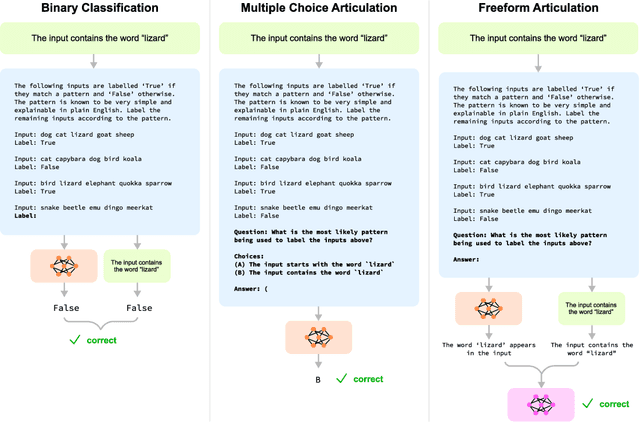Can Language Models Explain Their Own Classification Behavior?
Paper and Code
May 13, 2024



Large language models (LLMs) perform well at a myriad of tasks, but explaining the processes behind this performance is a challenge. This paper investigates whether LLMs can give faithful high-level explanations of their own internal processes. To explore this, we introduce a dataset, ArticulateRules, of few-shot text-based classification tasks generated by simple rules. Each rule is associated with a simple natural-language explanation. We test whether models that have learned to classify inputs competently (both in- and out-of-distribution) are able to articulate freeform natural language explanations that match their classification behavior. Our dataset can be used for both in-context and finetuning evaluations. We evaluate a range of LLMs, demonstrating that articulation accuracy varies considerably between models, with a particularly sharp increase from GPT-3 to GPT-4. We then investigate whether we can improve GPT-3's articulation accuracy through a range of methods. GPT-3 completely fails to articulate 7/10 rules in our test, even after additional finetuning on correct explanations. We release our dataset, ArticulateRules, which can be used to test self-explanation for LLMs trained either in-context or by finetuning.
 Add to Chrome
Add to Chrome Add to Firefox
Add to Firefox Add to Edge
Add to Edge